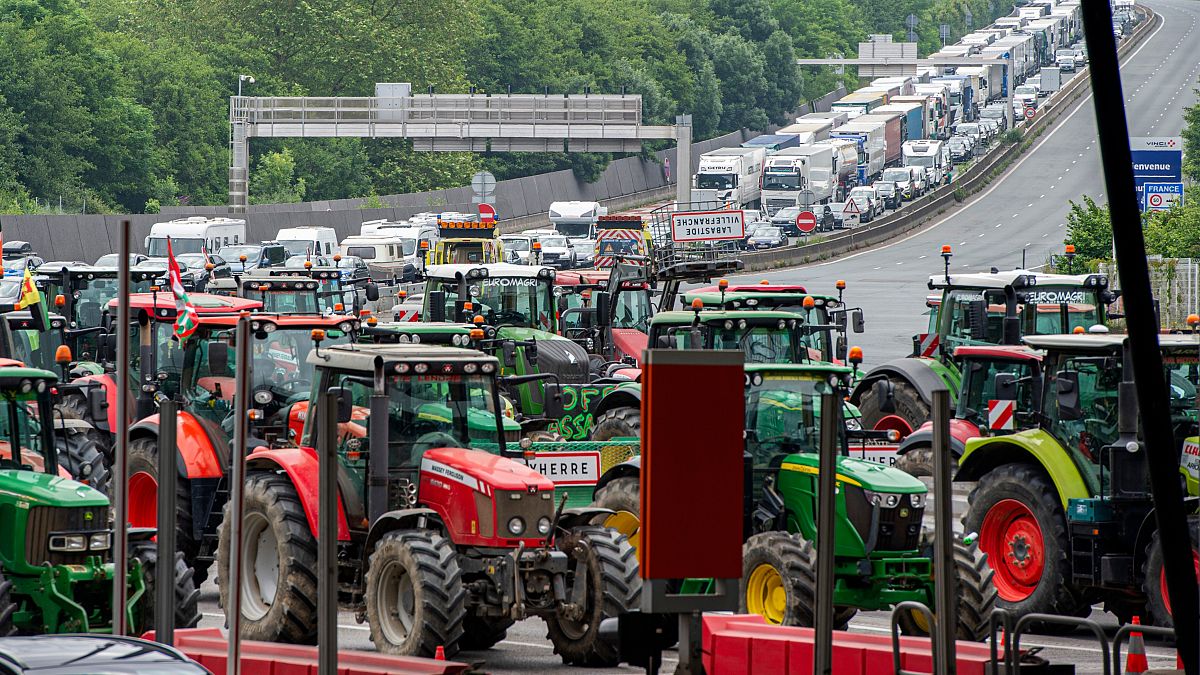
In recent days, farmers from both Spain and France have taken to the borders of their respective countries in a show of solidarity and protest against European policies that they believe threaten their livelihoods. The protests, which began on Monday and are expected to last until Tuesday, have caused significant disruptions at major crossing points between the two nations.
According to reports from various sources, including Euronews and local Catalan outlets, dozens of tractors have been blocking all major crossing points stretching from Irun in the Basque Country to La Jonquera in Catalonia. The rally was organized by Spanish Revolta Pagesa, a Catalan farmers' platform, together with agricultural organizations from Spain and French farmers' unions.
The protesters are demanding greater food security through increased local production and a tax break for energy used to produce food. They argue that European authorities need to pay attention to their concerns and protect the farming industry, which has been struggling in recent years due to various factors, including climate change and trade policies.
However, not all agricultural unions agree with the protest. Uniò de Pagesos, the union representing the majority of Catalan farmers, has refused to join. They argue that putting pressure on voters right before the European elections is 'illegitimate'.
Meanwhile, in Brussels, a group of fringe farming groups staged a rally on Tuesday to mobilize voters for the European elections. The event was organized by the MCC think tank and saw Tom Vandendriessche of the Flemish nationalist Vlaams Belang party speak out against EU climate neutrality plans, which he compared to 'climate madness'.
The MCC think tank had released a report earlier in the week arguing that the EU's approach to trade and agriculture was harming European farmers and threatening food security. Another report on climate disinformation warned that rural unrest around Europe had been weaponized to spread false claims seeking to discredit political action on climate change and deepen mistrust towards the EU.
Politicians affiliated with the far right were responsible for the majority of social media posts against climate action and the EU in at least six European countries. It remains to be seen how these protests will impact the upcoming European elections, but one thing is clear: farmers are sending a strong message to lawmakers in Brussels that they need to pay attention to their concerns and protect food security.



